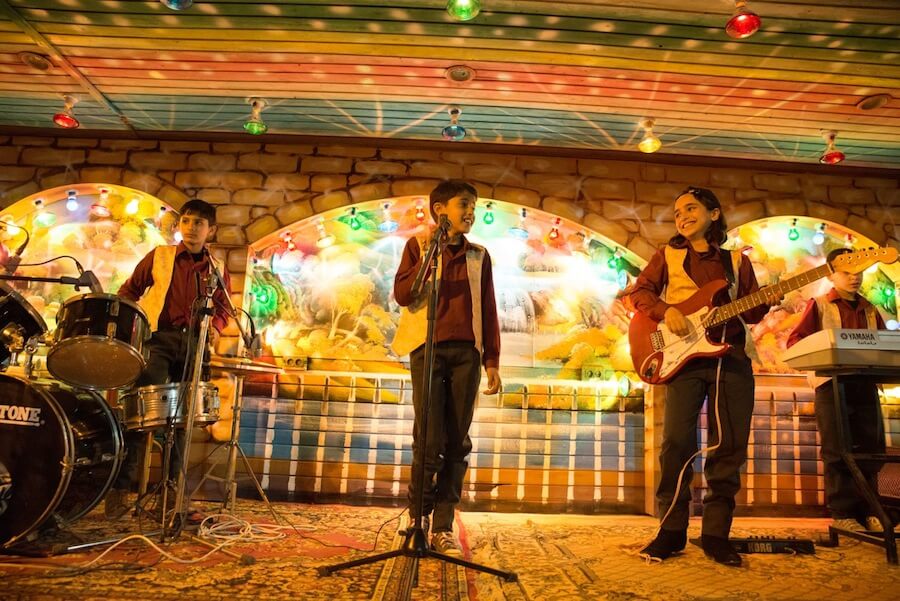‘The Idol’ It starts like a Palestinian “We Are the Best!” Three kids living in Gaza in 2005 want to form a band. Being from where they are, they face a lot of hurdles, even for young rockers with no initial talent. Instruments aren’t easy to find, and when they get a lead on a smuggler, he screws them over, stealing their money and brandishing a gun when they demand it back. The locals don’t take kindly to one of them being a girl — the tomboy Nour (Hiba Atallah) — and their early gigs mostly involve playing weddings to confused adults. Then they fall apart as quickly as they formed: One of them decides pop music is for the devil, and Nour contracts kidney cancer and soon fades. RELATED:“Chevalier” is another weirdo Greek film about humanity at its strangest You might have a little idea that this tale, veering between comedy and tragedy, will eventually turn out to be the story of Mohammed Assaf, the soulful singer who won the second round of “Arab Idol” in 2013. His is a crazy story even before he sneaks his way into Egypt and uses parkour (!!) to get inside the “Arab Idol” audition center. That’s how director Hany Abu-Assad treats it. This isn’t a mere triumph-of-the-human-spirit programmer. It’s not even only another polemic from Palestine. It’s a stranger-than-fiction shape-shifter that keeps reinventing itself. It doesn’t feel like a biopic; it feels like a cleverly scripted dramedy that happens to be based on fact. We’ve seen untold films about suffering and human rights violations from Palestine, including by Abu-Assad himself. (He made the Oscar-nominated “Paradise Now,” a sober and even-handed saga about suicide bombers.) That might be why “The Idol” is content to make its social points gently, even satirically, which give them even greater force. When the kids play weddings, Abu-Assad makes sure to show the men dancing while the women sit glumly on the sidelines. When he’s older, Assaf — played by Qais Atallah as a boy and Tawfeek Barhom as a young man — forms another band, and scores a slot on “Arab Idol.” But he’s denied entry to Egypt, and must do it over Skype — a telecast that goes hilariously awry when their generator catches on fire, making it look to TV audiences like they’re being raided by police. RELATED: “Unlocking the Cage” is not just an activist doc about animal rights Even when “The Idol” turns tragic, as it does now and then, Abu-Assad refuses to go sentimental, to crank up the strings and surgically extract our tears. Nour’s death is all the more affecting because she seems so full of cranky life right until her final moments. It betrays a filmmaker who’s learned to overcome untold obstacles, to get his voice to the outside world despite considerable restrictions. His depiction of Gaza as a city where the streets are caked in mud and peppered by bombed-out buildings, but where life still goes on, however compromised. “The Idol” fumbles in its final stretch, clumsily introducing broader issues it doesn’t the time to cover and falling back on video footage of the real Assaf. It becomes the weepie it resisted for so long. This could have easily been that weepie from start to finish. Instead it’s uncommonly alive.
Director: Hany Abu-Assad
Stars: Tawfeek Barhom, Ahmed Al Rokh
Rating: NR
3 (out of 5) Globes
‘The Idol’ is a biopic from Palestine that feels unusually alive

Adopt Films
Follow Matt Prigge on Twitter @mattprigge


















